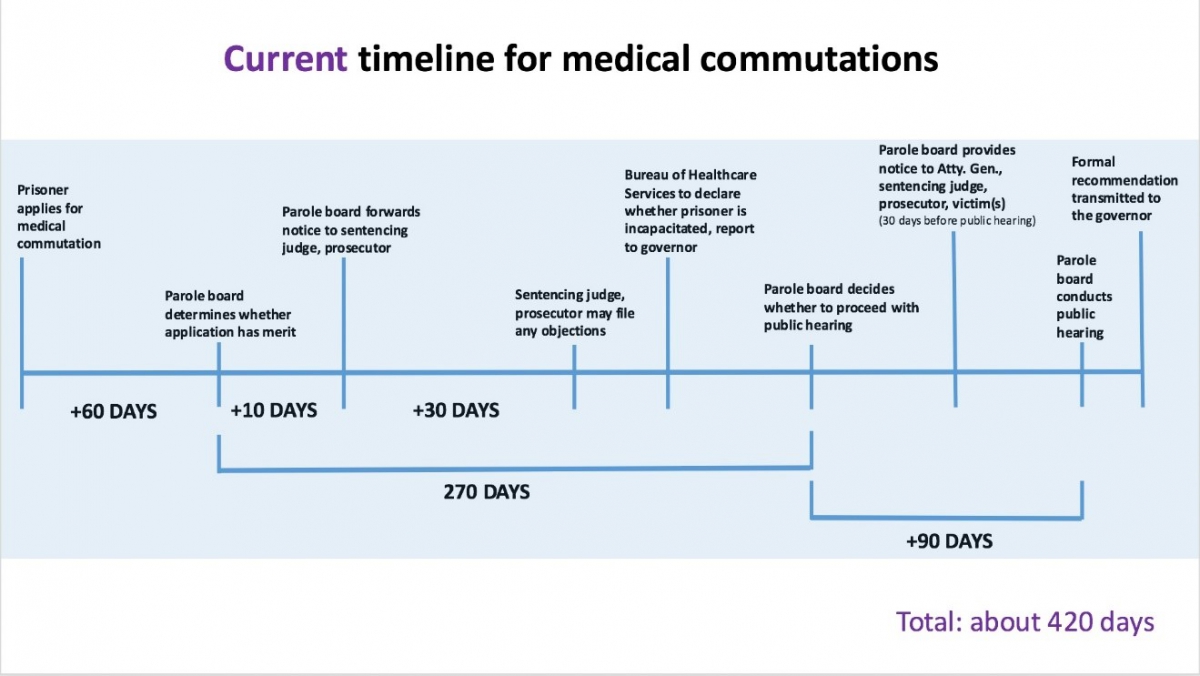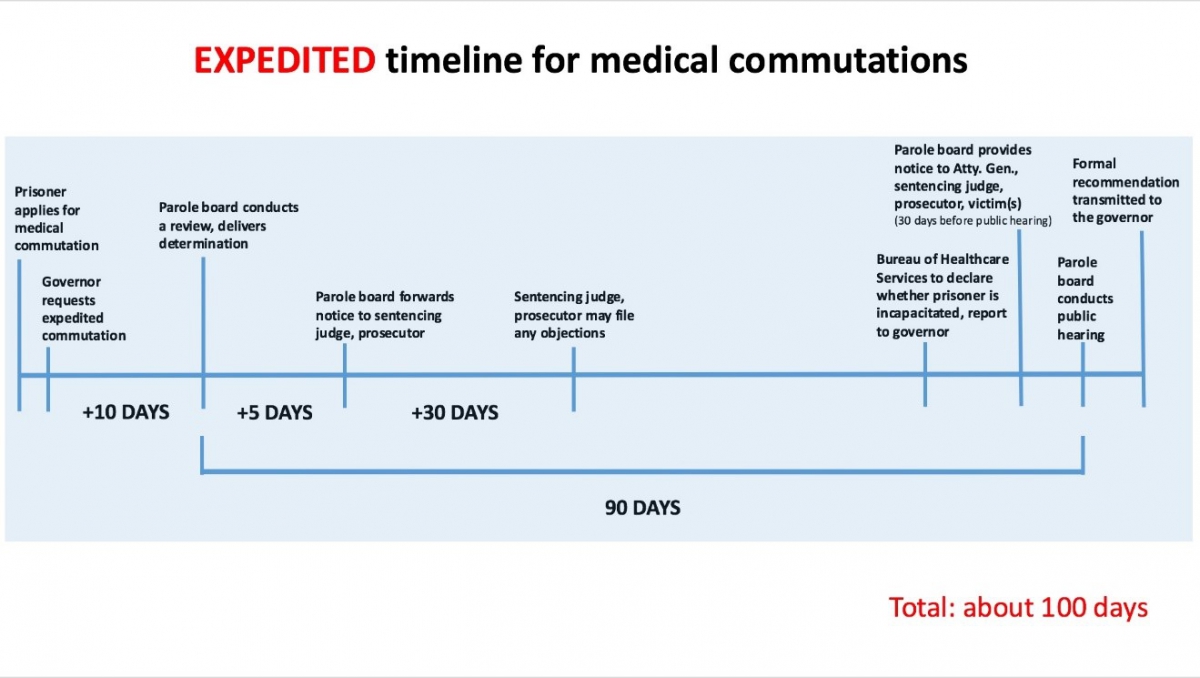The Michigan Department of Corrections (MDOC) houses over 40,000 prisoners in its facilities across the state. A number of these inmates have health conditions that could qualify them for a medical commutation. The purpose of the commutation is to grant release to ill prisoners under certain  circumstances caused by medical conditions. Under current law, the medical commutation process could take up to 420 days. Unfortunately prisoners often pass away while waiting for their application to complete this process.
circumstances caused by medical conditions. Under current law, the medical commutation process could take up to 420 days. Unfortunately prisoners often pass away while waiting for their application to complete this process.
The figure below shows the current commutation review timeline:

Source: Office of Senator John Proos
Senate Bill 12, sponsored by Senator Rick Jones (R- Grand Ledge), aims to reduce the length of the process down to about 100 days. This expedited process would have to be requested by the governor on a case by case basis and would still follow the current process, but would allow for an accelerated timeline.
Starting with the request from the governor, the Parole Board would have 10 days (as opposed to the original 60 days) to decide whether the application had merit to warrant a commutation. Once merit is determined, the timeframe for the Parole Board to send information to the judge and prosecuting attorney of the county in which the case was originally assigned would be cut in half from ten to five days. The judge and prosecuting attorney would still have the current full 30 days to respond to the notice. After the Bureau of Health Care Services evaluates the prisoner’s mental and physical health, the Parole Board must make a full investigation into whether to continue to a public hearing within 90 days of receiving the application. This step cuts down the required investigation timeframe from 270 days, greatly reducing the wait time for a commutation. The Parole Board must then give 30 days’ notice of the hearing to the Attorney General, sentencing judge, prosecuting attorney, and any involved victims. The involved victims are also given an opportunity to submit written testimony to the Board. The final step in the commutation process is to transmit the recommendation to the Governor. The figure below outlines the proposed expedited commutation process. Other states such as Georgia, Oklahoma, and Connecticut also have similar processes, although the timeline of their commutations is unknown.

Source: Office of Senator John Proos
Adopting the proposed expedited process would not only ease the suffering of many ill prisoners, but could also save taxpayer dollars. In the Governor’s corrections budget recommendation for Fiscal Year 2017/18, 2.3 million dollars was requested to fund specialty care costs associated with inmates with cancer. Allowing prisoners with cancer commutation would decrease MDOC costs, and permit them to fight their battle alongside loved ones at home.
References:
"Bill Analysis." Michigan Legislature, Senate Fiscal Agency, 1 Feb. 2017, www.legislature.mi.gov/documents/2017-2018/billanalysis/Senate/pdf/2017-.... Accessed 13 Mar. 2017.
"Legislative Analysis." Michigan Legislature, House Fiscal Agency, 8 Mar. 2017, www.legislature.mi.gov/documents/2017-2018/billanalysis/House/pdf/2017-H.... Accessed 13 Mar. 2017.
O'Connell, Rebecca. Personal interview. 18 Feb. 2017.
Senate Bill No. 12." Michigan Legislature, Michigan Senate, 8 Mar. 2017, www.legislature.mi.gov/documents/2017-2018/billengrossed/Senate/pdf/2017.... Accessed 13 Mar. 2017.



